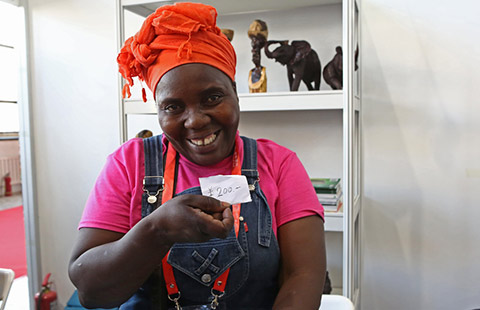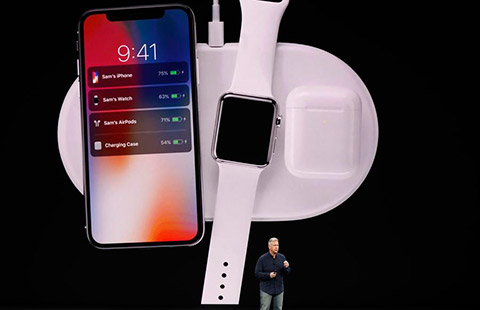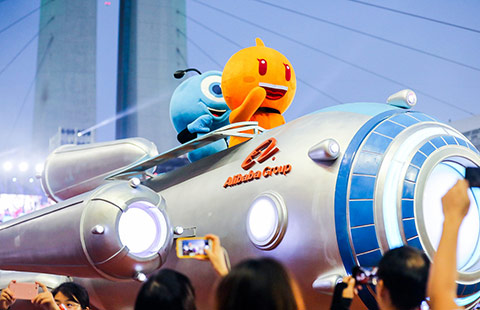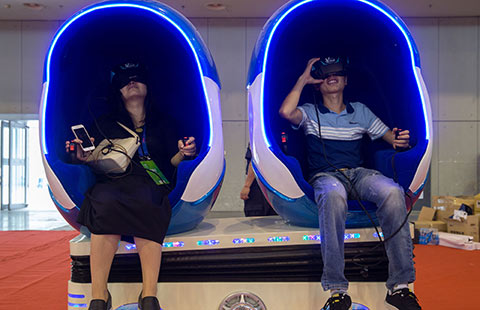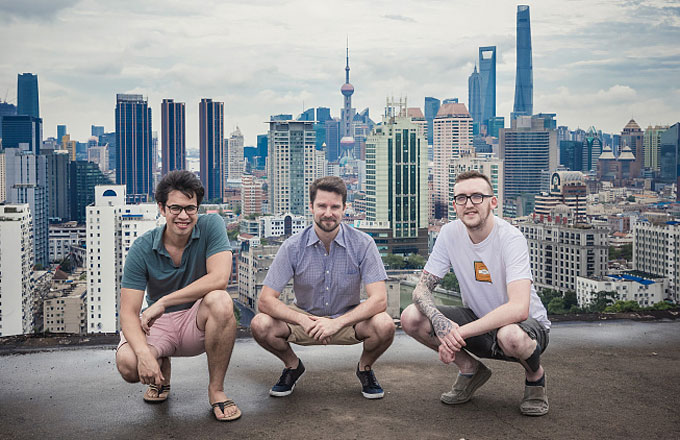Electric cars and suvs create a buzz
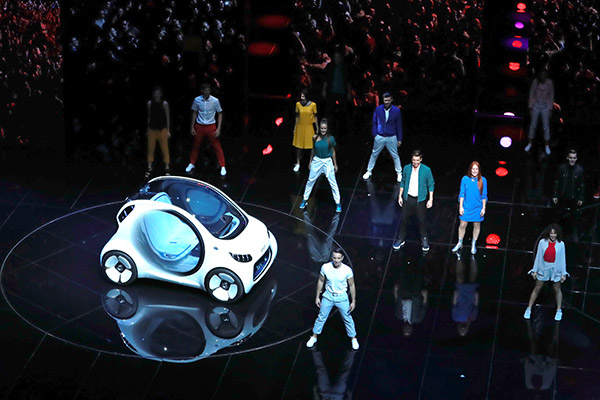 |
|
Daimler AG's new Smart concept autonomous car Vision EQ is displayed during the Frankfurt International Motor Show (IAA) in Germany, Sept 12, 2017. [Photo/Xinhua] |
Auto manufacturers spend heavily to develop and improve environment-friendly vehicles to meet increasingly tough government regulations across the world
FRANKFURT-Car manufacturers wheeled out a fleet of electric vehicles at the glitzy Frankfurt International Motor Show in Germany this week.
The industry's major players are desperate to stay in a race that is gradually being dominated by e-cars as the sector goes through a period of rapid change.
German giant Volkswagen AG showed off a revised version of its electric ID Crozz crossover SUV concept vehicle as it announced a long-term electrification campaign.
By 2025, VW plans to introduce 80 new e-vehicles as well as investing 20 billion euros ($24 billion) in upgrading plants.
"Now the big question that everyone is asking is, when will we see (electric cars) in mass volume," Matthias Mueller, CEO of Volkswagen said earlier this week.
Depending on market developments, VW hopes to sell three million battery-only vehicles a year in 2025. But they will face stiff competition in what is turning into a cutthroat market.
Daimler AG's Mercedes-Benz unveiled a compact electric vehicle under its EQ sub-brand on Wednesday and the GLC F-Cell, a battery-fuel cell hybrid, which can run on hydrogen and emits only water vapor.
BMW AG is also showing off a concept vehicle for the first electric Mini compact due to be rolled out in 2019.
Indeed, auto companies are spending millions of dollars to develop and improve e-cars to meet increasingly tough government regulations aimed at combating air pollution.
This comes at a time when electric models are not enjoying high sales globally because of limited range, high prices and a lack of fast-charging stations.
As battery technology improves and costs come down, analysts expect electric sales will eventually take off.
According to research and analytics firm IHS Markit, battery-only cars were 0.57 percent of global production in 2016 and will increase to 0.86 percent this year.
The United Kingdom and France have proposed eliminating internal-combustion engine cars by 2040.
The Chinese government is developing a timetable to end the production and sale of traditional fuel cars as well as promoting development of electric technology, State media cited a minister-level official as saying.
The country also plans to use ethanol gasoline by 2020, according to the National Development and Reform Commission, and the National Energy Administration or NEA.
The plan was unveiled on Wednesday as China pushes the use of biofuels. It is another ideal alternative to fossil fuels, a senior NEA official said.
Still, there are crucial challenges ahead for new energy vehicles.
"It is not just a matter of what is being offered from manufacturers but also the electric charging infrastructure," Mueller at VW said.
"That is why it is important to have a fact-based conversation about the urgent problems with electric mobility and how they can be solved. This needs to be discussed jointly, with electricity companies, with states, with local authorities," he added.
The arrival of battery-powered cars is just one anticipated change.
Automakers are also searching for ways to adapt to a future in which people find ways of getting from one place to another without necessarily owning a car through ride-hailing firms.
They are also working on developing autonomous vehicles that could drive themselves-under limited circumstances such as corporate campuses at first.
Eventually, e-cars look certain to dominate the showrooms and highways of the future.
In Frankfurt, the three German luxury car manufacturers set up large display areas, while some rival companies skipped the motor show altogether.
Cost was a major reason as well as opting to display cars to the public through live streaming events. No-shows included Fiat Chrysler's namesake Fiat and its Jeep and Alfa Romeo brands, Peugeot and its DS luxury division, plus Nissan, Infiniti and Volvo.
Even Porsche, part of Volkswagen, did not wait for the event but showed off its new Cayenne SUV last month with an elaborate streamed curtain-raiser from its base in Stuttgart.
Small SUVs are also a theme at the show as manufacturers crowd into a segment that has proven a winner with consumers.
New SUV offerings, or SUV-like body stylings, on compact car platforms include Volkswagen's T-Roc, the SEAT Arona, Jaguars E-Pace, Kia Stonic, Citroen C3 Aircross, Skoda Karoq and a so-far unnamed offering from Chery.
But high-end cars remain a fixture as before. Rolls-Royce has a new version of its Phantom, and Daimler is unveiling its Mercedes-Benz-AMG Project ONE, a two-seater hybrid with more than 1,000 horsepower and a top speed of 350 kph.
AP-CHINA DAILY




